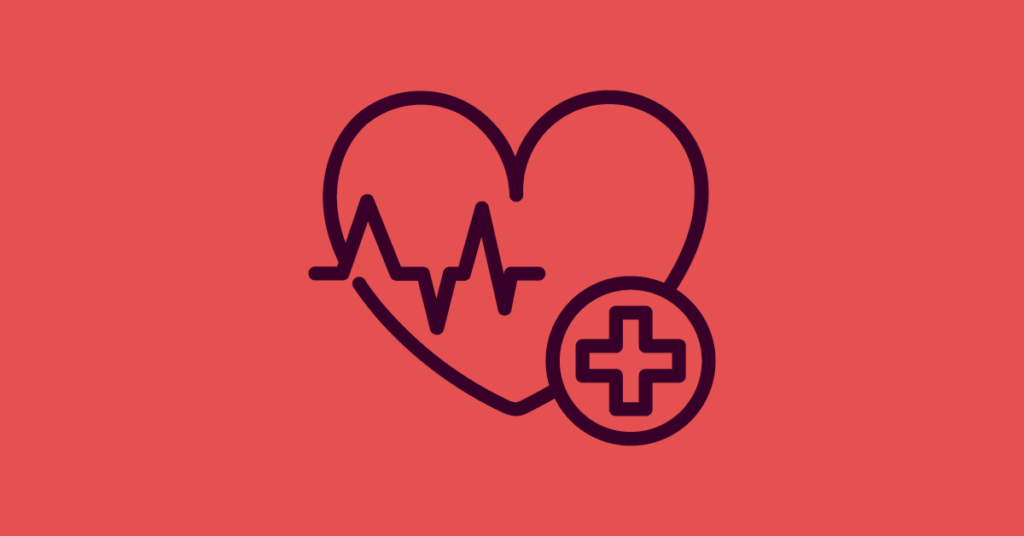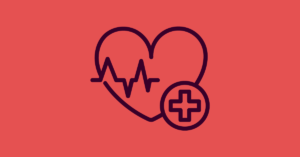Snapshot
Lower estrogen levels can slow down our metabolism and cause more fat storage.
Hormonal changes during menopause can slow metabolism and lead to fat storage, especially around the abdomen. With some lifestyle tweaks like strength training, a balanced diet, and stress management, we can effectively manage weight gain during menopause.

What is happening to our bodies?
Estrogen plays many roles in our bodies, one being the regulation of where fat is stored. With less estrogen, our bodies tend to store more fat around the belly while also slowing down our metabolism. The result? We might notice weight gain, even if we’re eating and exercising the same as before.
Studies have found that women gain an average of 1.5 pounds (0.7 kg) per year during their 50s and 60s.
What science tells us about menopause and weight gain
Research shows that the drop in estrogen during menopause is the main driver of weight gain. This hormonal shift causes our bodies to store fat differently, favoring the abdomen over the hips and thighs.
Studies have found that lower estrogen levels slow down our metabolism, meaning we burn fewer calories at rest. This change, combined with a natural decrease in muscle mass as we age (muscle mass tends to decrease by about 3-8% per decade after the age of 30, accelerating after age 50), makes it easier to gain weight. This shift in fat distribution is not just a cosmetic issue—visceral fat around the abdomen is linked to higher risks of heart disease, type 2 diabetes, and other metabolic conditions.
Managing weight gain
By following a combination of strength training, mindful eating, aerobic exercise, and a protein-rich diet, it’s possible to mitigate the weight gain often associated with menopause. The science supports these strategies as effective tools for improving both body composition and overall health during and after this transition.
Strength training: Numerous studies support the benefits of strength training for counteracting the loss of muscle mass and boosting metabolism. Resistance training not only preserves muscle mass but also helps reduce body fat and abdominal fat in women. Incorporating weightlifting, resistance bands, or bodyweight exercises 2-3 times a week can help maintain muscle mass and support long-term weight management.
Dietary adjustments: Research shows that focusing on nutrient-dense foods is crucial during menopause with diets rich in protein helping preserve muscle mass and promote fat loss. Protein also has a higher thermic effect than carbohydrates and fats, meaning the body burns more calories digesting protein-rich foods. Including more lean proteins, such as chicken, fish, legumes, and plant-based proteins, can assist in maintaining muscle and reducing body fat.
Cardiovascular exercise: Science also supports the role of aerobic exercise in managing menopausal weight gain. Regular aerobic activity, such as walking, running, or cycling, helps improve metabolism, reduce abdominal fat, and enhance heart health. The American Heart Association recommends at least 150 minutes of moderate-intensity aerobic exercise each week for optimal health benefits.
Mindful eating: Evidence also suggests that practicing mindful eating can help reduce overeating and promote a healthier relationship with food. Studies show that mindfulness-based interventions can reduce emotional eating and improve self-regulation, leading to more successful weight management. Paying attention to hunger cues, avoiding distractions while eating, and savoring meals can all help curb overeating.
Seeing your practitioner
If lifestyle changes aren’t helping and the weight gain becomes concerning, it’s important to talk to a healthcare provider. Conditions like thyroid imbalances or insulin resistance may be contributing to the issue, and a doctor can provide guidance on tests, medications, or hormone therapies to help manage weight.
Anything else?
- Stay hydrated: Drinking enough water can prevent overeating, as we sometimes confuse thirst for hunger.
- Get enough sleep: Proper sleep helps regulate hunger hormones, making it easier to manage cravings and avoid overeating.
- Manage stress: While easier said than done – chronic stress raises cortisol levels, which can increase fat storage, especially around the abdomen. Activities like yoga or meditation can help lower stress and support weight management.
Remember: You’re not alone
Menopause is a natural part of life, and the changes that come with it, including potential weight gain, are normal. Be kind to yourself and focus on overall health rather than just the number on the scale.
Toolkit for managing weight gain
Here are some products that might help manage any un-welcomed belly fat:
- Resistance bands: Ideal for strength training and building muscle at home.
- Fitness trackers: Help you monitor your activity and stay motivated to reach your goals.
- Some prefer to wear these around their wrist or on their finger.
- Meal planning tools: Assist in preparing balanced, portion-controlled meals to support a healthy metabolism.


















